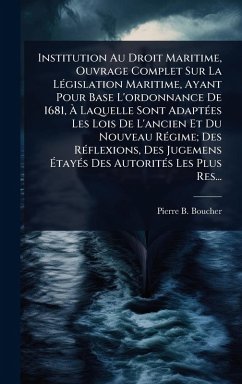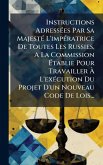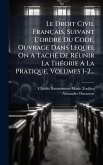Institution Au Droit Maritime is a comprehensive work on maritime legislation, based on the Ordinance of 1681, adapted to the laws of the old and new regimes. It includes reflections and judgments supported by the most respected authorities. This historical text by Pierre B. Boucher provides invaluable insight into the evolution of maritime law in France. It is an essential resource for legal scholars and historians interested in the development of legal systems and maritime practices during a transformative period in European history. This work has been selected by scholars as being culturally important, and is part of the knowledge base of civilization as we know it. This work was reproduced from the original artifact, and remains as true to the original work as possible. Therefore, you will see the original copyright references, library stamps (as most of these works have been housed in our most important libraries around the world), and other notations in the work. This work is in the public domain in the United States of America, and possibly other nations. Within the United States, you may freely copy and distribute this work, as no entity (individual or corporate) has a copyright on the body of the work. As a reproduction of a historical artifact, this work may contain missing or blurred pages, poor pictures, errant marks, etc. Scholars believe, and we concur, that this work is important enough to be preserved, reproduced, and made generally available to the public. We appreciate your support of the preservation process, and thank you for being an important part of keeping this knowledge alive and relevant.
Bitte wählen Sie Ihr Anliegen aus.
Rechnungen
Retourenschein anfordern
Bestellstatus
Storno








